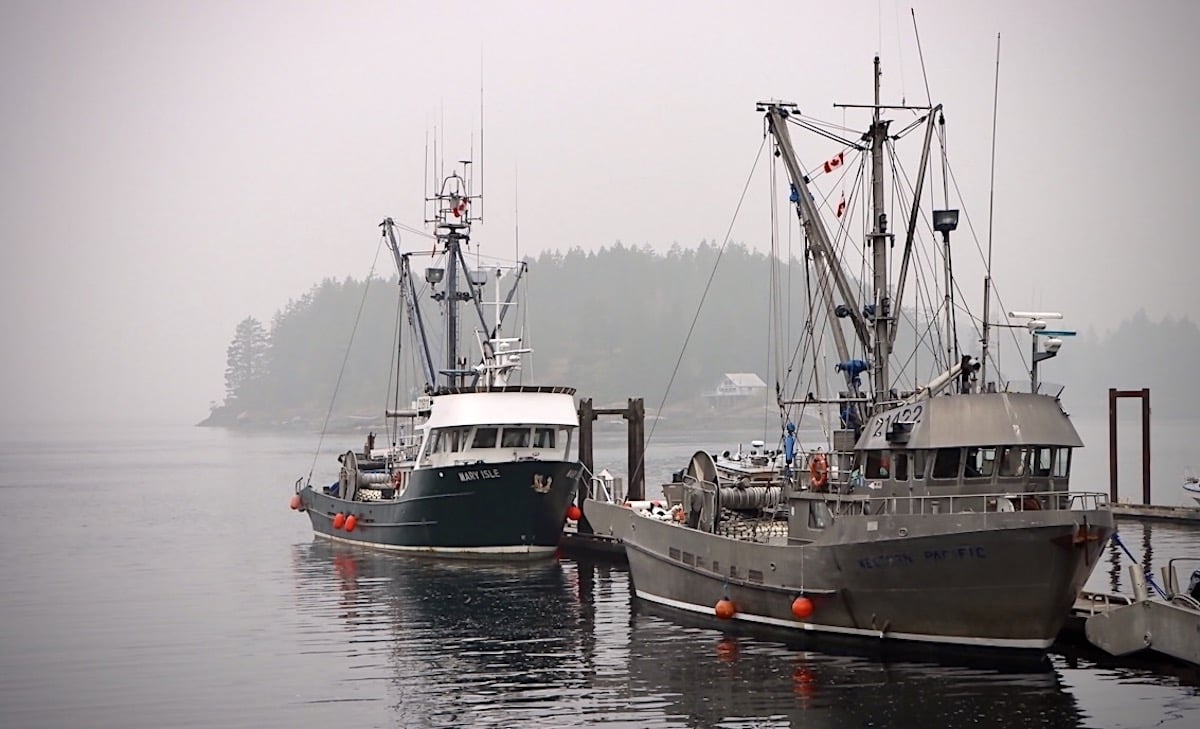Support strong Canadian climate journalism for 2025
A parliamentary committee investigating whether corporations and foreign owners have a stranglehold on Canadian fisheries is experiencing a serious case of deja vu.
Witnesses speaking about the dire straits faced by commercial fish harvesters and coastal communities on the West Coast are raising the same issues first presented to the Standing Committee of Fisheries and Oceans (FOPO) starting in 2018.
Independent operators, First Nations and young fishers are being squeezed out by skyrocketing prices for commercial fishing licences and quota — a set share of the allowable catch — witnesses told the committee at ongoing meetings starting May 8.
The result is a concentration of industry control and profit in the hands of corporations, processors, foreign and domestic investors, or retired harvesters, FOPO heard.
On the West Coast, the complete absence of ownership restrictions for licences and quota means the federal government is managing fisheries solely to maximize profits over social benefits, said Villy Christensen, a professor at the Institute for the Oceans and Fisheries at the University of British Columbia.
Citing the lucrative halibut fishery as an example, research shows that active harvesters now own less than 15 per cent of the quota — a commodity that is increasingly expensive and falling into the hands of investors and companies with deep pockets, he said.
Yet in complete contrast, on the East Coast, Fisheries and Oceans Canada (DFO) established policies to ensure licences remain in the hands of independent harvesters and to limit corporate control so commercial fishers and coastal communities benefit from the industry.
In the Atlantic and Quebec, owner-operator regulations stipulate harvesters must “have boots on deck” to get a licence, and fleet separation rules mean processing companies and fish buyers can’t own them.
The shift in focus from owner-operator to corporate dominance on the West Coast has been devastating for fishing communities, Christensen said.
“[DFO] policy makes fisheries efficient, leading to easier-to-manage big-scale fleets to the detriment of local communities,” he said.
“Rural coastal communities are dying throughout B.C., and that notably includes First Nations losing livelihood and traditional knowledge about fishing.”
Community-based fisheries serve as magnets for tourism and provide local seafood jobs, built on value-added processing and marketing, with revenue remaining in local or regional economies.
“[Fisheries’] value does not come from exporting raw seafood products or [domestic] products that can’t compete with low-cost imports,” Christensen said.
Most commercial harvesters have no choice but to lease quota or licences from processors that oblige them to sell fish back to the company at the price offered, he said.
Harvesters forced to lease increasingly expensive licences or quota also see their revenue continue to shrink while bearing the rising costs of moorage, fuel, boat maintenance and repairs, and paying crews, the committee heard.
Kyle Louis, a fourth-generation Indigenous harvester and vice-president of the United Fishermen and Allied Workers Union (UNIFOR), said he took out a loan to refit his boat so he could fish prawns as well as salmon.
But he was stranded ashore when the B.C. pawning season got underway in May because he was outbid 140 per cent for a licence by an overseas investor looking to secure as many licences and as much product as possible.
More disturbing still was that the licence type he bid on was a PICFI licence — developed to create space for Indigenous fishers and communities in the commercial fisheries.
“There is zero DFO policy to ensure Indigenous commercial harvesters get first access at reasonable lease rates, which results in people like me either not being able to compete to lease licences or having to get companies to finance at lease rates such that we end up having to pay back the majority of the value of our catch to a company,” Louis said.
Most fishing costs must be paid before the season gets underway, and it’s not financially viable when up to 80 per cent of the value of the catch falls into other hands, he said.
There continues to be no transparency about who actually owns or controls leases and quota on the West Coast despite being repeatedly flagged as a concern in the past, the committee heard.
In 2019, the committee conducted a related investigation examining fisheries regulations and equity issues on the Pacific Coast and produced a report with 20 recommendations on how the federal government and the Ministry of Fisheries and Oceans could address the situation in B.C.
One recommendation called for a public database on who owns licences and quota and information on the costs of selling or leasing those items. DFO staff told the committee an ownership survey of Pacific coast licences and quota has been conducted and the results will be released in the coming months.
All the problems and suggested solutions remain the same as last time the committee examined fisheries issues in B.C., said Sonia Strobel, CEO of Skipper Otto Community Supported Fishery, adding progress would be underway if any of the past recommendations had been acted on.
“It kind of boggles the mind that we're here still having the same conversations five years later,” Strobel said.
“We need to look very hard at the social, economic and cultural outcomes that we desire from the fishery and then make changes that share the risk.”
Determining who controls quota and licences won’t level the playing field for fishing families if DFO doesn’t enact some form of owner-operator and fleet separation policy on the West Coast as it has done back East, said Christensen and Strobel.
Independent fishers who can’t sell their catch to the highest bidder have no agency, Strobel said.
“What needs to be done is clear and was pointed out four years ago in [the committee’s] West Coast fisheries report,” Christensen said.
Only active independent harvesters should be allowed to own licences and quota, he stressed.
“Just like on the East Coast, it’s time to right the ship.”
Rochelle Baker / Local Journalism Initiative / Canada’s National Observer






Comments